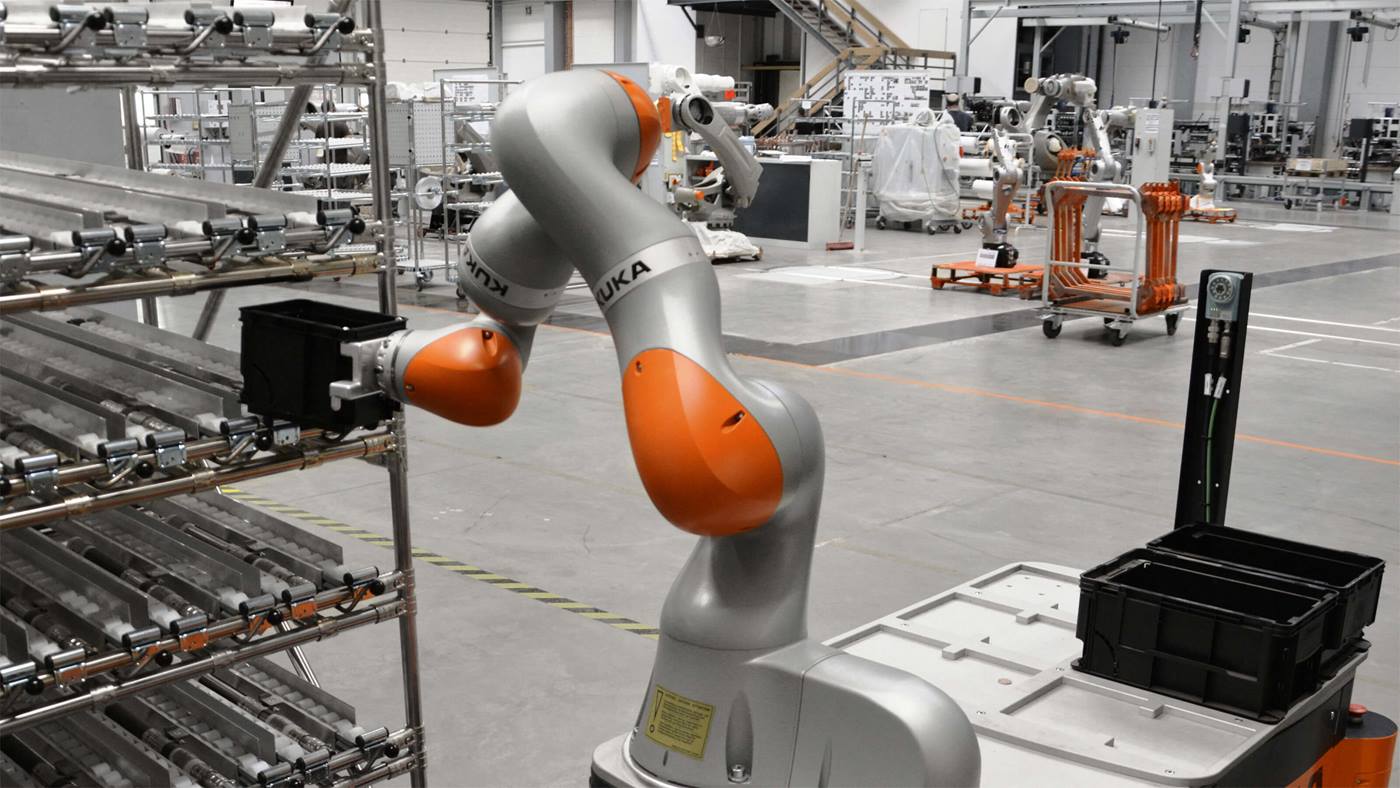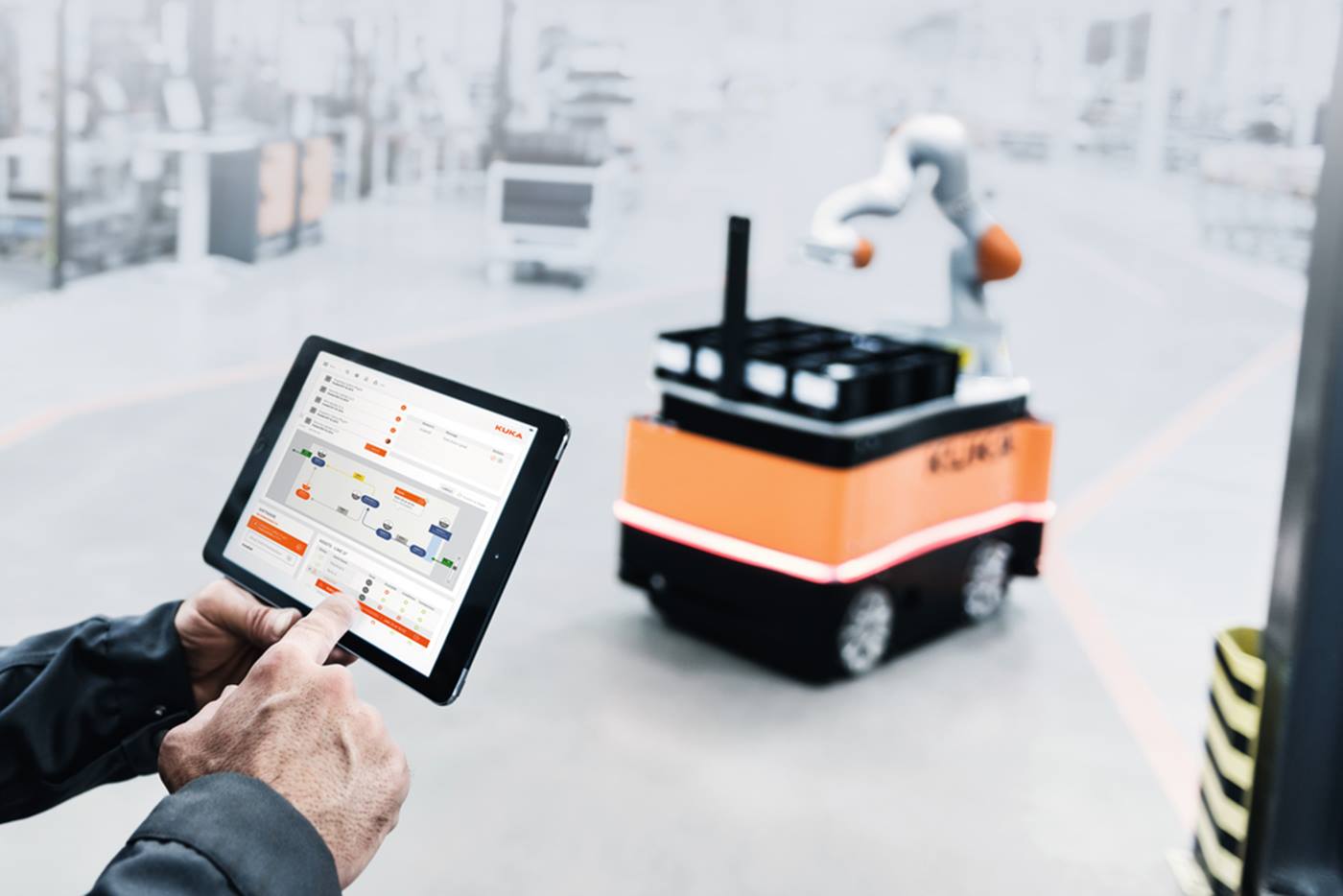
CosiMo
Leveraging machine learning for the efficient high-volume production of carbon-fiber reinforced lightweight plastic components.
KUKA is engaged in a joint research project aimed at developing mass production for composite materials. The goal is to develop manufacturing processes for the mass production of composite parts for use in the automotive and aircraft construction industries. Machine learning methods, intelligent tools, KUKA robots and KUKA Cloud solutions are to be deployed to achieve efficient and resource-conserving production with short cycle times that can also be transferred to other manufacturing processes.
The three-year CosiMo research project, funded by the Bavarian government, began in June 2018 and brings together KUKA, Faurecia, Premium Aerotec, Augsburg University, the German Aerospace Center and eight other partners. Part of the project focuses on research into new technologies for fully automated manufacturing processes for fiber-reinforced plastics, also known as composite materials. The objective is to manufacture components in their final shape in a single process step. This in turn enables the sustainable and cost-effective production of lightweight components in the automotive and aircraft construction industries.
This single-stage manufacturing requires various individual processes to be linked in an intelligent tool. The process steps will be monitored continuously using suitable sensors in order to verify material properties and assure the required quality of the components. Here, machine learning is to be leveraged to help understand the process, anticipate any quality defects, prevent these by adapting the production process and minimize rejects. To make learning independent of the manufacturing process, the project is seeking to develop an appropriate cloud infrastructure using standards such as OPC UA for data communication.
The availability of large quantities of high-quality data as well as the ability to process them are the preconditions for machine learning. There is a large body of academic work in this area. This focuses mostly on image and speech recognition. However, initial applications for enhancing processes in industrial environments have also been successfully implemented. The goal is to apply existing scientific findings to process control in the production of materials and to advance them even further.
The planned single-stage and fully automated production of fiber-reinforced plastics is significantly more efficient, resource-conserving and cost-effective than current production processes. Beyond this, lightweight construction for automobiles and aircraft leads to reduced fuel consumption and CO2 emissions.


